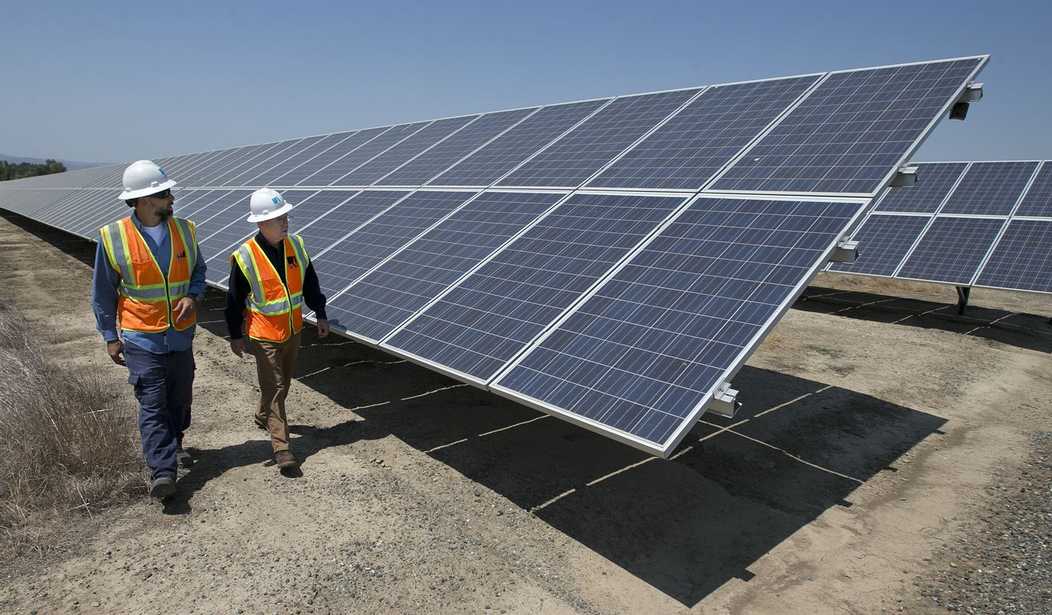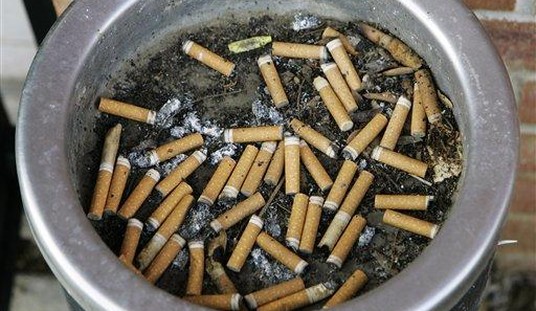Senator Kamala Harris has been a longtime supporter of the energy policy embraced by California. She congratulated current California Governor Gavin Newsom on his swearing-in, confident he would be an effective leader to combat climate change:
Congratulations, @GavinNewsom, on your swearing in! I know you’ll be a strong leader for California on everything from combating climate change to ensuring everyone can afford to pursue higher education. pic.twitter.com/JKlPJcPr7P
— Kamala Harris (@KamalaHarris) January 7, 2019
If her comments from 2017 are any indication, she expected that by this year California would get 50% of its energy from renewable sources:
California is on track to get 50% of our electricity from renewable sources by 2020, a decade ahead of schedule. We will continue to lead even when this Administration won’t. https://t.co/4gPBO6sHJ3
— Kamala Harris (@KamalaHarris) November 16, 2017
Now, in a bit of Twitter magic, it’s been revealed that in February 2016 Harris suggested that supporting Joe Biden could be a way to. bring California’s energy policy to the entire nation, revealing that she thinks that energy policy is one that should be emulated.
CA ensures that 1/3 of electricity is from renewable sources. Here’s how we can make it a model nationwide: https://t.co/NuQSwI0QkR
— Kamala Harris (@KamalaHarris) February 9, 2016
This issue matters because it is clear that Joe Biden leading on anything is not going to happen. As vice president, it would be Harris and the cabinet determining policy until Biden steps down. Polling shows a majority of Americans believe Biden will not complete his first term, and indeed, his low-key campaign, with few extemporaneous appearances, supports this thesis.
Voters Do Not Think Joe Biden Will Complete His First Term, Making His VP Pick the Real Nominee
So how is California’s energy policy working out? According to all available evidence, not very well. During recent heatwaves, the state has experienced rolling blackouts. In Los Angeles, the mayor felt compelled to send out the following instructions:
It’s almost 3 p.m. Time to turn off major appliances, set the thermostat to 78 degrees (or use a fan instead), turn off excess lights and unplug any appliances you’re not using.
We need every Californian to help conserve energy. Please do your part. #FlexAlert
— MayorOfLA (@MayorOfLA) September 6, 2020
While a portion of the greater Los Angeles area is on fire, making outdoor air quality terrible, California residents are instructed to sit in the dark and use fans to push the hot air around their homes. Do you unplug the microwave if you are not using it right now? Not sure. If you are lucky, your refrigerator will keep running, and the food in your freezer will be safe.
To demonstrate how bad this problem actually is, the next day, a user tweeted a map showing power outage alerts:
Reason: It’s hot out.
— Jon Nicosia (@NewsPolitics) September 7, 2020
As Slate explains, solar power can accommodate the needs during sunny daytime hours, but the wind does not always pick up the slack when the sun goes down. Current battery storage technologies are not adequate to store the energy required under these conditions:
But with non-hydroelectric renewable technologies, mostly solar and wind, generating about 30 percent of California’s electricity today, we are witnessing the types of obstacles and problems that these new technologies introduce.
Solar power, of course, is well matched with high demand for air conditioning in the middle of the day. That advantage disappears when the sun goes down but the temperature doesn’t. Distributed and centralized electricity storage technologies can shift some power generation toward later in the day. But lithium-ion battery systems are usually designed for only a few hours of storage—enough to accommodate much of the daily swings in solar generation, but not the type of extreme surges in demand we’ve seen this week. Storage technologies that last a few days would help, but truly high-renewables systems will likely require seasonal storage technologies that can shift consumption from the hot months to the cool months. Beyond geographically constrained, pumped hydroelectric storage systems, those technologies are largely nonexistent.
Normally California relies on their neighbors like Arizona and Nevada to fill the gap. It does this so it can virtue signal about renewables and then siphon the additional power they need from natural gas and coal-fired plants in other states. However, when it is also hot in those states, they cut off the excess supply.
Climate activist Michael Shellenberger has identified the weakness in energy policies like California’s, which shutter nuclear power plants. In his book Apocalypse Never, he shows why renewables are not capable of powering cities due to energy density needs. It is simple physics, according to Shellenberger.
This Short Video Exposes Everything That Is Wrong With Biden’s Green New Deal
The Biden/Harris ticket needs to clarify its energy policy. The policy on Joe Biden’s website includes the use of nuclear power to reduce reliance on fossil fuels. As Shellenberger points out, this is how France powers a significant portion of its power grid today without new technologies.
However, the Unity Platform negotiated between the Biden and Bernie Sanders coalitions of the Democrat Party eliminates the use of nuclear without advances that eliminate the perceived risks. The California policy Harris advocates does not include nuclear. One plant has already been decommissioned, and Pacific Gas and Electric has said it will not seek to extend the license for the Diablo Canyon nuclear plant. The two reactors that power 1.7 million homes will shut down in 2024 and 2025.
Given the recent experience in California, the state’s energy policy is not one that should be implemented nationwide. Whether it is power outages in the hot and humid Southeast in the summer or Minnesota during subzero weather, they are dangerous, especially for the elderly and chronically ill. A competent media would be asking Biden and Harris about these policies in light of the recent problems in California. Obviously, that won’t happen.
Editor’s Note: Want to support PJ Media so we can continue telling the truth about the Biden-Harris campaign? Join PJ Media VIP TODAY and use the promo code LAWANDORDER to get 25% off your VIP membership.
Biden/Sanders Unity Platform: Climate ‘Justice’, Big Government, and Buckets of Borrowed Cash










Join the conversation as a VIP Member